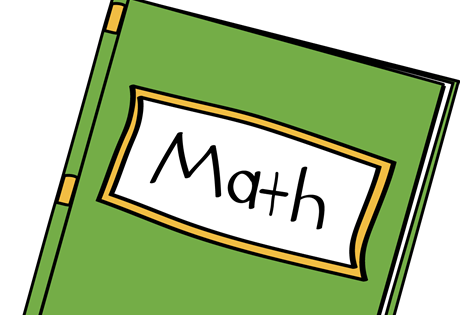Mathematics 9133 :: Real Analysis :: Winter 2019
What's new?
Presentation schedule posted. Week 12 lectures posted.Course at a glance:

Location and Time::
Lectures: MC 107 Tuesdays 1.30 - 2.30 PM and Thursdays 10.30 AM - 12.30 PM.
There will be no lectures on March 21, 26, and 28.
OWL Page: Login HERE

Textbook
There is no required textbook. Instead a complete set of lecture notes will be available for download from this web page.Some relevant books on the subject:
- V.S. Vladimirov "Methods of the Theory of Generalized Functions"
- W. Rudin "Functional Analysis"
- W. Donoghue "Distributions and Fourier Transforms"
- J. Duistermaat, J. Kolk "Distributions: Theory and Applications"

Instructor
Lectures: Prof. Rasul Shafikov, shafikov@uwo.ca.
Office Hours: Wednesdays 1.30 - 3.30 PM in MC 112. Additional office hours: April 22,
2-4 PM.

Course Outline
The course covers functions of several variables and the theory of distributions. The first half of the course is suitable as a preparation for the real analysis part of the PhD Comprehensive I.

What is expected of the student?
Students are expected to attend all lectures, complete all assignments, and give a presentation at the end of the course. Biweekly homework assignments is an essential part of the course.

Course Evaluation
Assignments - 50%; Presentation - 50%. .
Detailed Information
Course Material
The following topics will be covered.
- Functions of several variables: continuity, differentiability, Implicit/Inverse function theorems, Rank theorem, higher order derivatives.
- Integration: Riemann integral, Lebesgue integral (quick introduction), Fubini's theorem, basic $L^p$ spaces, H\"older inequality, integrals depending on parameter.
- Surface integrals: line and surface integrals, Divergence theorem, Green's formula, integration by parts, spherical coordinates, surface area, partition of unity.
- Introduction to ODEs and PDEs: basic definitions, examples, existence results.
- Distributions: test functions, basic properties of distributions, convolution, fundamental solutions of differential operators, Magrange-Ehrenpreis theorem.
Lecture Notes:
- Week 1 Differentiation of functions of several variables; (updated on Jan 15)
- Week 2 Inverse Function theorem and friends (updated on Jan 17);
- Week 3 Integration: from Riemann to Lebesgue (updated on Jan 30);
- Week 4 L^p spaces and their relatives (updated on Jan 31);
- Week 5 Divergence theorem and consequences (updated on Feb 6);
- Week 6 Differential Equations (updated on Feb 26);
- Week 7 The space of test functions (updated on Feb 28);
- Week 8 Basic Theory of Distributions;
- Week 9 Differentiation of distributions;
- Week 10 Structure theorems and convolution of distributions (updated on April 1);
- Weeks 11 Fundamental Solutions of Differential Operators (updated on April 4);
- Weeks 12 Fundamental solutions of classical operators.
Homework
Homework will be collected biweekly.
- Assignment 1. Due Feb 5.
- Assignment 2. Due Feb 26.
- Assignment 3. Due March 14.
- Assignment 4. Due April 2.
Presentations
At the end of the course each student is expected to give an oral presentation on the topic chosen by the student in consultation with the instructor. In addition a student will submit a 4-5 page writeup of the presentation, which will also be evaluated.
Presentation Schedule:
- Tuesday, April 23, 9.30 - 11.30 AM in MC 108: Schouten, Gamble, Beauvais-Feisthauer
- Thursday, April 25, 9.30 - 11.30 AM in MC 108: Venga, Hellmann, Gunasingam
Possible topics for presentation (with suggested references from the list of textbooks above)
- Tempered Distributions (e.g., Vladimirov) [Chris Hellmann]
- Theorem: every distribution is a derivative of a continuous function (Rudin) [Henk Schouten]
- Stochastic Differential Equations [Madhusoodan Gunasingam]
- Fourier Transform [Amar Venga]
- Applications to quantum field theory [Jeremy Gamble]
- Direct product of distributions (e.g., Vladimirov) [Joey Beauvais Feisthauer]
- Currents (e.g., "Introduction to the theory of currents" by Dihn and Sibony)
- Harmonic and Subharmonic distributions (Donoghue)
- Introduction to Sobolev Spaces
Policies
SENATE POLICY ON PREREQUISITES: Unless you have either the requisites for this course or written special permission from your Dean to enroll in it, you may be removed from this course and it will be deleted from your record. This decision may not be appealed. You will receive no adjustment to your fees in the event that you are dropped from a course for failing to have the necessary prerequisites.
STATEMENT ON ACADEMIC OFFENCES: Scholastic offences are taken seriously and students are directed to read the appropriate policy, specifically, the definition of what constitutes a Scholastic Offence. Computer-marked multiple-choice tests and/or exams may be subject to submission for similarity review by software that will check for unusual coincidences in answer patterns that may indicate cheating.
ABSENCE OR MISSED WORK: If you are unable to meet a course requirement due to illness consult the Policy on Accommodation for Medical Illness - Undergraduate. If you are unable to meet a course requirement due to other serious circumstances, contact your instructor immediately.
SUPPORT SERVICES: Registrars:
Main Campus (other registrar offices: Brescia, Huron, King's);
Student Development Centre;
University Students' Council;
Academic Calendar;
Students who are in emotional/mental distress should refer to
Mental Health Western
for a complete list of options about how to obtain help.
STUDENT ACCESSIBILITY SERVICES: Western is committed to achieving barrier-free accessibility for all its members, including graduate students. As part of this commitment, Western provides a variety of services devoted to promoting, advocating, and accommodating persons with disabilities in their respective graduate program. Graduate students with disabilities (for example, chronic illnesses, mental health conditions, mobil- ity impairments) are encouraged to register with Student Accessibility Services, a confidential service designed to support graduate and undergraduate students through their academic program. With the appropriate documentation, the student will work with both SAS and their graduate programs (normally their Graduate Chair and/or Course instructor) to ensure that appropriate academic accommodations to program requirements are arranged. These accommodations include individual counselling, alterna- tive formatted literature, accessible campus transportation, learning strategy instruction, writing exams and assistive technology instruction. For further details visit Student Accessibility Services.